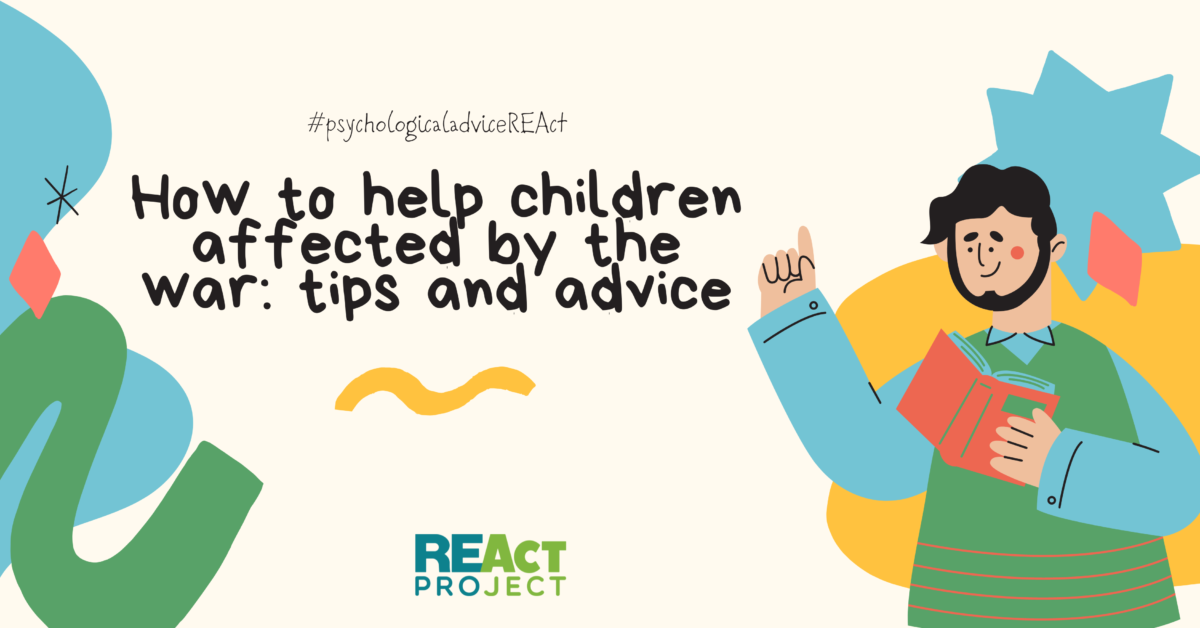Due to the beginning of a full-scale war, many Ukrainians were forced to go abroad with their children. The children lost their safe, permanent place of residence, their room, bed, friends, communication, the usual street, and park. The children were already traumatized by the move itself. What is much worse is when the child was in the occupation, heard explosions and saw destroyed buildings, witnessed injuries or deaths, or lost their relatives. This considerable stress is reflected in the child’s sense of internal security.
Then how to help a child to cope with all this?
- It is necessary to remember that the adults around a child must stabilize their condition first. The child reads the anxiety restlessness impulses that you feel. They seek to have support, to see someone they can rely on. And if you are not in the resource, the child experiences traumatic events much harder. Therefore, stabilizing your condition is the task number 1. This will help you understand where to move next and how to help the little ones.
- Understanding how to talk to the child about the events they experienced is essential. You should definitely talk about it. If this is avoided, all the child’s experiences are “crammed” into the body and manifest as psychosomatic symptoms. It happens to everyone individually, but it is always highly unpleasant.
- Feel free to seek medical help in the country where you happen to stay.
- Write down the symptoms observed in the child: insomnia, sleep talking, anxiety, congestion, diarrhea, nausea, constant body scratching, sudden cough, fears, physical exhaustion, loss of orientation, etc. It is necessary to tell the doctor in detail what is happening to the child.
How to talk to a child about psychological support:
- First, you need to realize that you are the mother (father or guardian) and are responsible for your child`s health.
- Explain that you are eager to help but cannot do it as professionally as a specialist. For this purpose, there are psychologists and psychotherapists – specially trained people who help children survive a trauma.
- It is not worth expecting your child to agree to go to a doctor or therapist after your first conversation. After all, the child`s psyche is traumatized, and they might no longer perceive anything apart from the trauma. It can be complicated, but you should speak without any pressure. Explain that you invite them to go together because you care about the child and will always find a solution to help them.
- When a child loses their safe and routine life, their home, it creates a “void” that needs to be filled. If it is not done, the child’s psyche can be broken down. It can lead to the development of some mental disorders if you do not turn to help on time. Don’t delay. If you see that your child is not “ok”, in no case, postpone your visit to a specialist.


